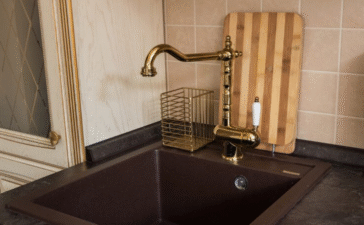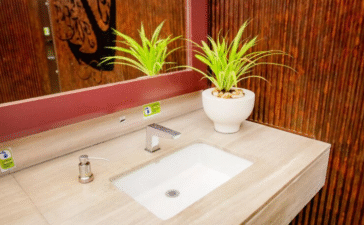Adding a second storey to your home represents one of the most significant investments you can make in your property. With housing costs continuing to rise and families requiring more space, 2 storey extension cost have become a headache.
Understanding the true cost of a two-storey extension involves much more than simply calculating construction expenses. From initial design fees to unexpected structural challenges, the financial commitment extends well beyond the basic building work. Property owners who fail to account for all associated costs often find themselves facing budget overruns that can derail their entire project.
This comprehensive guide examines every aspect of two-storey extension costs, providing you with the detailed information needed to make informed decisions about your home expansion project. We’ll explore typical price ranges, hidden expenses, cost-saving strategies, and the potential return on investment to help you determine whether this substantial undertaking aligns with your financial goals and lifestyle needs.
What is a 2 Storey Extension?
A two-storey extension represents a vertical expansion of your existing home, adding both ground floor and upper floor living spaces simultaneously. Unlike single-storey additions that extend outward from your property’s footprint, these structures maximize space efficiency by building upward, making them particularly valuable for properties with limited garden space.
Homeowners typically pursue two-storey house expansions to accommodate growing families, create dedicated home offices, or add rental income potential through self-contained living areas. The additional living space commonly includes bedrooms, bathrooms, kitchen extensions, or multi-purpose family rooms that transform how families use their homes.
The primary advantage of choosing a two-storey approach over single-storey alternatives lies in the substantial increase in usable square footage without sacrificing valuable outdoor space. This vertical expansion strategy can effectively double the additional space gained from your project while often providing better value per square meter compared to single-level extensions.
Modern two-storey extensions also offer opportunities to incorporate contemporary design elements, improve energy efficiency, and create seamless connections between old and new living areas. Many homeowners use these projects to completely reimagine their home’s layout and functionality.
How Much Does a 2 storey extension cost?
The average cost of a two-storey extension in the UK typically ranges from £1,800 to £2,500 per square meter for standard specifications, with premium projects reaching £3,000 to £4,000 per square meter. For a typical 40 square meter two-storey extension, homeowners should budget between £72,000 and £160,000 for the complete project.
Regional variations significantly impact these baseline figures. Extension costs in London and the South East can exceed £3,500 per square meter due to higher labor costs, premium materials demand, and stricter planning requirements. Conversely, projects in Northern England, Wales, and Scotland often fall toward the lower end of the price spectrum, with costs potentially dropping to £1,500 per square meter in some areas.
Home extension price calculations must account for the complexity of adding structural support for the additional floor, which requires more substantial foundations and framework compared to single-storey additions. The dual-level nature of these projects also necessitates more extensive utility installations, including electrical systems, plumbing, and heating infrastructure for both floors.
Construction material costs have fluctuated significantly since 2022, with steel, timber, and concrete prices experiencing notable increases. Current market conditions suggest budgeting an additional 15-20% above pre-pandemic pricing levels to account for ongoing material cost volatility.
Key Factors That Affect the 2 storey extension cost
Several critical factors determine the final cost of your two-storey extension project, with land characteristics playing a fundamental role. Properties with challenging ground conditions, such as clay soil or high water tables, require more expensive foundation solutions that can add £5,000 to £15,000 to project costs. Similarly, restricted access to your property may necessitate specialized equipment and longer construction timelines.
Extension design complexity directly correlates with construction costs. Standard rectangular extensions with straightforward roof lines represent the most economical approach, while custom architectural features, curved walls, or complex roofing systems can increase costs by 25-40%. The choice between traditional brick construction and modern materials like steel frame or timber frame construction also significantly impacts pricing.
Labor costs vary dramatically based on location and project complexity. Urban areas typically command premium rates for skilled tradespeople, with daily rates for experienced builders ranging from £200 to £400. Projects requiring specialized skills, such as structural steelwork or complex utility routing, may require additional specialist contractors at premium rates.
Planning permission requirements and building regulations compliance add both direct costs and potential delays to projects. Standard planning applications cost £462, but complex proposals may require additional surveys, specialist reports, or architectural revisions that can add thousands to your budget. Building regulations approval typically costs £150 to £500 depending on project scope.
Cost Breakdown of a 2 storey extension cost
Initial project costs begin with professional fees that typically represent 10-15% of the total extension project budget. Architectural services for design development and planning applications range from £3,000 to £8,000, while structural engineer consultations add another £1,500 to £3,500. These upfront investments are essential for ensuring your project meets all regulatory requirements and construction standards.
The largest expense category involves actual building costs, which typically consume 60-70% of your total budget. Foundation work for supporting the additional storey costs £8,000 to £15,000, while structural framework including steel beams and supports adds £12,000 to £25,000. External walls, roofing, and weatherproofing represent another £15,000 to £30,000 depending on material choices and architectural complexity.
Interior finishing costs vary enormously based on specification levels. Basic electrical and plumbing installations cost £3,000 to £6,000, while premium fixtures and fittings can easily exceed £15,000. Kitchen installations for ground floor extensions range from £5,000 for basic units to £25,000+ for high-end specifications, while bathroom additions typically cost £3,000 to £12,000.
Additional costs often overlooked include temporary accommodation expenses if you need to vacate during construction, storage costs for household items, and utility connection fees. These ancillary expenses can add £2,000 to £8,000 to your overall project budget.
Hidden Costs of a 2 storey extension
Construction projects frequently encounter unexpected challenges that generate significant additional expenses. Ground conditions surveys may reveal the need for enhanced foundation solutions, potentially adding £5,000 to £20,000 to project costs. Similarly, existing structural issues discovered during construction, such as inadequate load-bearing walls or outdated electrical systems, can require expensive remedial work.
Project delays represent another major source of hidden expenses. Weather-related delays, material supply chain disruptions, or planning requirement changes can extend construction timelines by several months. Each additional month typically adds 5-8% to labor costs while potentially increasing material costs due to price inflation.
Utility upgrades often prove more complex than initially anticipated. Older properties may require complete electrical system updates to handle increased loads from the extension, costing £3,000 to £8,000. Similarly, heating system upgrades to accommodate additional radiators and hot water demands can add £2,000 to £6,000 to project costs.
Cost overruns commonly occur when homeowners make specification changes during construction. While seemingly minor modifications, such as upgraded flooring or additional electrical outlets, can individually add hundreds or thousands to project costs. Establishing a detailed specification before construction begins and maintaining strict change control procedures helps minimize these budget impacts.
Ways to Save on a 2 storey extension
Strategic planning represents the most effective approach for controlling extension costs without compromising quality or functionality. Obtaining multiple detailed quotations from reputable contractors allows for meaningful cost comparisons and helps identify potential areas for savings. Engaging an experienced project manager can also prevent costly mistakes and delays that often plague self-managed projects.
Material selection offers significant opportunities for cost reduction without sacrificing structural integrity or aesthetic appeal. Choosing cost-effective alternatives to premium materials, such as engineered timber instead of hardwood or composite materials instead of natural stone, can reduce costs by 20-30%. However, avoiding false economies by maintaining quality standards for structural elements and weatherproofing systems is crucial.
Construction timing can substantially impact project costs. Scheduling construction during contractors’ quieter periods, typically winter months, may secure lower labor rates and better availability. However, weather-related delays during winter construction can offset these savings, making spring and early summer optimal for most projects.
Undertaking certain aspects of the project yourself, such as painting, landscaping, or basic interior fitting, can reduce labor costs. However, attempting complex tasks beyond your skill level may result in expensive mistakes that exceed any potential savings. Focus DIY efforts on finishing tasks rather than structural or technical installations.
Comparing a 2 storey extension with Other Types of Extensions
Single-storey extensions typically cost £1,200 to £1,800 per square meter, making them significantly less expensive than two-storey alternatives on a per-square-meter basis. However, this comparison doesn’t account for the total usable space gained, where two-storey extensions often provide better overall value. A single-storey extension gaining 25 square meters costs approximately £30,000 to £45,000, while a two-storey extension providing 50 square meters costs £90,000 to £125,000, representing better per-square-meter value for the additional space gained.
Loft conversions present the most cost-effective option for gaining additional living space, typically costing £15,000 to £35,000 for standard conversions. However, loft spaces often have height restrictions, limited natural light, and access challenges that make them unsuitable for certain uses. Two-storey extensions provide full-height rooms with optimal natural light and direct ground-floor access.
The choice between extension types depends heavily on your specific requirements and property characteristics. Families needing ground-floor living space, such as elderly relatives or mobility considerations, benefit more from single-storey extensions. Those prioritizing maximum space gain while preserving garden areas find two-storey extensions more suitable.
Planning permission requirements vary between extension types, with single-storey extensions often falling under permitted development rights while two-storey extensions typically require full planning applications. This difference can add both cost and time to two-storey projects but provides greater design flexibility and potential for more substantial property value increases.
The Return on Investment (ROI) for a 2 storey extension
Property value increases from two-storey extensions typically range from 15% to 25% of the property’s original value, though this varies significantly based on local market conditions and the quality of execution. In areas with high property values and limited housing stock, well-executed extensions can return 80-100% of their cost through increased property value. However, over-improving your property relative to neighborhood standards may not yield proportional returns.
The relationship between extension costs and property value gains is not always linear. Extensions costing £100,000 may increase property value by £80,000 to £120,000, depending on local market conditions and buyer preferences. Premium specifications that significantly exceed neighborhood standards may not provide proportional value returns, making standard-quality finishes more financially prudent.
Long-term financial benefits extend beyond immediate property value increases. Additional living space can eliminate the need for costly house moves, saving estate agent fees, stamp duty, and removal costs that typically total 3-5% of property values. For growing families, extensions provide cost-effective space solutions that avoid disrupting children’s education or established community connections.
Rental income potential from self-contained extension areas can provide ongoing returns on investment. Two-storey extensions designed with separate entrances and kitchen facilities can generate £600 to £1,200 monthly rental income, providing payback periods of 8-15 years depending on construction costs and local rental markets.
Are 2 storey extensions Worth the Investment?
The financial justification for two-storey extensions depends on your specific circumstances, local property market conditions, and long-term housing plans. Properties in high-value areas with limited housing supply typically provide better investment returns than those in declining or oversupplied markets. Consulting local estate agents about typical extension values in your specific neighborhood provides valuable insight into potential returns.
Lifestyle considerations often outweigh pure financial calculations when evaluating extension projects. Growing families facing space constraints may find extensions provide better value than purchasing larger properties, particularly when factoring in moving costs, mortgage arrangement fees, and the disruption of relocating. Similarly, home-based business owners may find dedicated office space creates income opportunities that justify extension investments.
The quality of execution significantly impacts both immediate satisfaction and long-term value returns. Extensions built to high standards using quality materials typically provide better returns than budget alternatives that may require costly maintenance or replacement within 10-15 years. Engaging experienced professionals, while more expensive initially, often proves more economical over the extension’s lifetime.
Market timing considerations also influence extension values. Property markets experiencing growth phases typically provide better returns on extension investments than declining markets. However, construction costs also tend to rise during market upswings, potentially offsetting some benefits of improved property values.
Also check: “glass extensions“
Maximizing Your Extension Investment
Successful two-storey extension projects require careful planning, realistic budgeting, and experienced professional guidance. The substantial financial commitment involved makes thorough preparation essential for achieving satisfactory outcomes both functionally and financially. Understanding all associated costs, from initial design through final completion, enables informed decision-making throughout the project lifecycle.
Working with experienced architects and contractors who understand local planning requirements and construction challenges can prevent costly mistakes and delays. While professional fees represent significant upfront costs, the expertise provided typically saves money through efficient design solutions, accurate cost estimation, and effective project management.
The long-term value of two-storey extensions extends well beyond simple financial returns. Improved living space quality, enhanced property functionality, and the satisfaction of creating your ideal home environment provide benefits that are difficult to quantify financially but contribute significantly to overall life satisfaction.
Ready to explore your two-storey extension possibilities? Contact experienced local contractors for detailed quotations and begin transforming your vision into reality. Professional consultation can help refine your plans, optimize your budget, and ensure your extension project delivers the space and value improvements you’re seeking.
FAQs
How long does a 2 storey extension typically take to complete?
Most two-storey extensions require 4-8 months from construction start to completion, depending on size and complexity. Planning permission and design development add another 2-4 months to the timeline. Weather conditions, material availability, and specification changes can extend these timeframes significantly.
Do I need planning permission for a 2 storey extension?
Two-storey extensions typically require full planning permission, unlike single-storey extensions that may fall under permitted development rights. Planning applications cost £462 and take 8 weeks for standard decisions, though complex proposals may require longer determination periods.
What’s the minimum budget needed for a 2 storey extension?
Basic two-storey extensions start around £60,000 for small, simple designs using standard materials. However, most homeowners should budget £80,000-£120,000 for typical projects including professional fees, planning costs, and reasonable quality specifications.
Can I live in my house during a 2 storey extension construction?
Living arrangements depend on extension location and construction methods. Many homeowners remain in residence during construction, though dust, noise, and limited access to certain areas can be challenging. Temporary kitchen and bathroom arrangements may be necessary during utility connections.
How do I choose between different extension contractors?
Evaluate contractors based on relevant experience, professional certifications, insurance coverage, and detailed references from recent projects. Obtain at least three detailed quotations and verify all contractors are registered with relevant trade bodies. Price should be considered alongside quality and reliability factors.
What happens if my extension project goes over budget?
Budget overruns are common in construction projects, typically ranging from 10-20% above original estimates. Establish contingency funds of 15-20% beyond your initial budget and maintain strict change control procedures. Regular progress meetings with contractors help identify potential cost increases early.
Will a 2 storey extension affect my home insurance?
Extension projects typically require notification to your insurance company and may temporarily increase premiums during construction. Permanent changes may affect rebuild costs but often don’t significantly impact standard premiums. Consult your insurance provider before beginning construction work.












